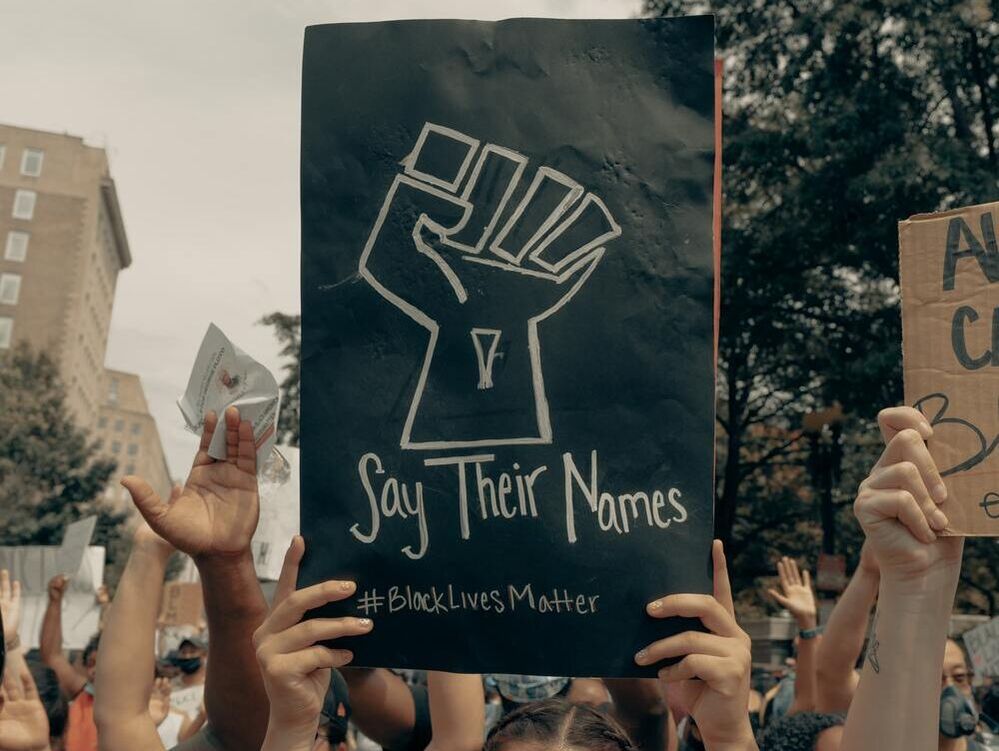|
|
|
Following George Floyd's horrific death and the scenes of his sensational courtroom trial which played out to public scrutiny across the world, my recently published Identities article, 'The dying Black body in repeat mode: the Black 'horrific' on a loop', addresses the notion of the recurrence of 'Black death' in repeat mode offline and its viral circulation online in the digital economy.
Digital platforms abstract dead bodies as floating matter to be consumed without context. In tandem, this 'repeat mode' produces a visuality or a 'shadow archive' to showcase Black bodies as perpetually given over to brutality, violence and foreshadowed by the possibility and actuality of constant death. The horrific killings of Blacks is sustained through police brutality against the historic context of slavery, White oppression, segregation, Black civil rights movements and an American dream forged through Black death as part of a visual regime. My article opens up with the question from a Black student posted on a research mailing list online, on the troubling phenomenon of consuming Black bodies in demise in repeat mode on the internet. The student's query bridges a number of issues including the role of the digital sphere as a virtual graveyard in shaping Black consciousness and communion, given the internet's 'body snatching' tendencies in which violence, death and bodies struggling to 'breathe' float infinitum.
If Black humanity is reduced to 'flesh' yet contained within the nexus of hypervisibility/invisibility in terms of subjecthood, then how do digital platforms abstract Black death as part of a capitalist agenda, whereby virulence produces value online? If Black death is both spectacular and banal through its recurrence, the instability of the internet becomes a fertile ground for disparate agendas facilitating racist articulations and echo chambers, but equally platforms for mobilising Black insurgency.
Where Black humanity is both positioned as flesh and formless, Blackness, I argue, is already pre-configured as virtual. Historically, these senseless killings have mobilised local, national and global sentiments against racism, xenophobia and extreme sufferings imposed on Black humanity, as in the case of the open casket of young Emmett Till in 1955. His lifeless mutilated body invoked a public spectacle and, in the process, transformed from a 'trophy' of lynching and racial violence to a mirror into the depravity of Whiteness. Similarly, the death of George Floyd must be viewed within this continuum of a quest for social justice and a politics of refusal even in the face of death, and despite the internet's tendency to circulate death imagery as part of its consumption economy. The digital sphere as disembodied, virtual and given over to instability of form and format ironically provides an unstable fluid platform to convene and materialise Black humanity - to commune, grieve and feel its insides. The utilisation of the online spaces for activism as exemplified by Black Lives Matter (BLM) and the emphasis to name the murdered, commemorate their lives and create a continuity through sustained activism enacts the virtual as a generative graveyard for Black humanity. It draws on the virality of the internet to re-ignite death and demise as agentic moments of re-generation and resurrection of Black humanity. Equally, online spaces enable the expression of a sense of community through grief, and mobilise a politics of refusal against White supremacy, thus remaking social media as a generative graveyard for Blackness of lived reality and the virulent dead online.
Image credit: Photo by Clay Banks on Unsplash
Blog post by Yasmin Ibrahim, Queen Mary University of London, UK
Read the Identities article:​​ Ibrahim, Yasmin. The dying Black body in repeat mode: the Black ‘horrific’ on a loop. Identities: Global Studies in Culture and Power. DOI: 10.1080/1070289X.2021.1920775
Explore other relevant Identities articles:
Contesting racism: how do the black middle-class use cultural consumption for anti-racism? On deaf ears: anti-black police terror, multiracial protest and white loyalty to the state Containment, activism and state racism: the Sheku Bayoh justice campaign ​​ ​Necropenology: conquering new bodies, psychics, and territories of death in East Jerusalem
0 Comments
Your comment will be posted after it is approved.
Leave a Reply. |
|
Explore Identities at tandfonline.com/GIDE |
|
The views and opinions expressed on The Identities Blog are solely those of the original blog post authors, and not of the journal, Taylor & Francis Group or the University of Glasgow.


